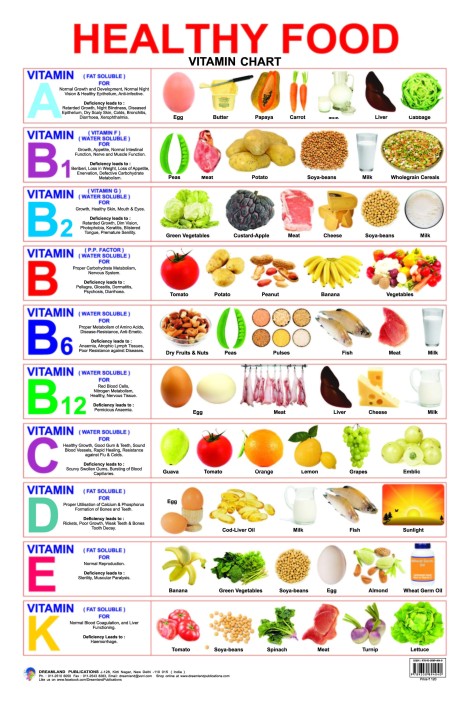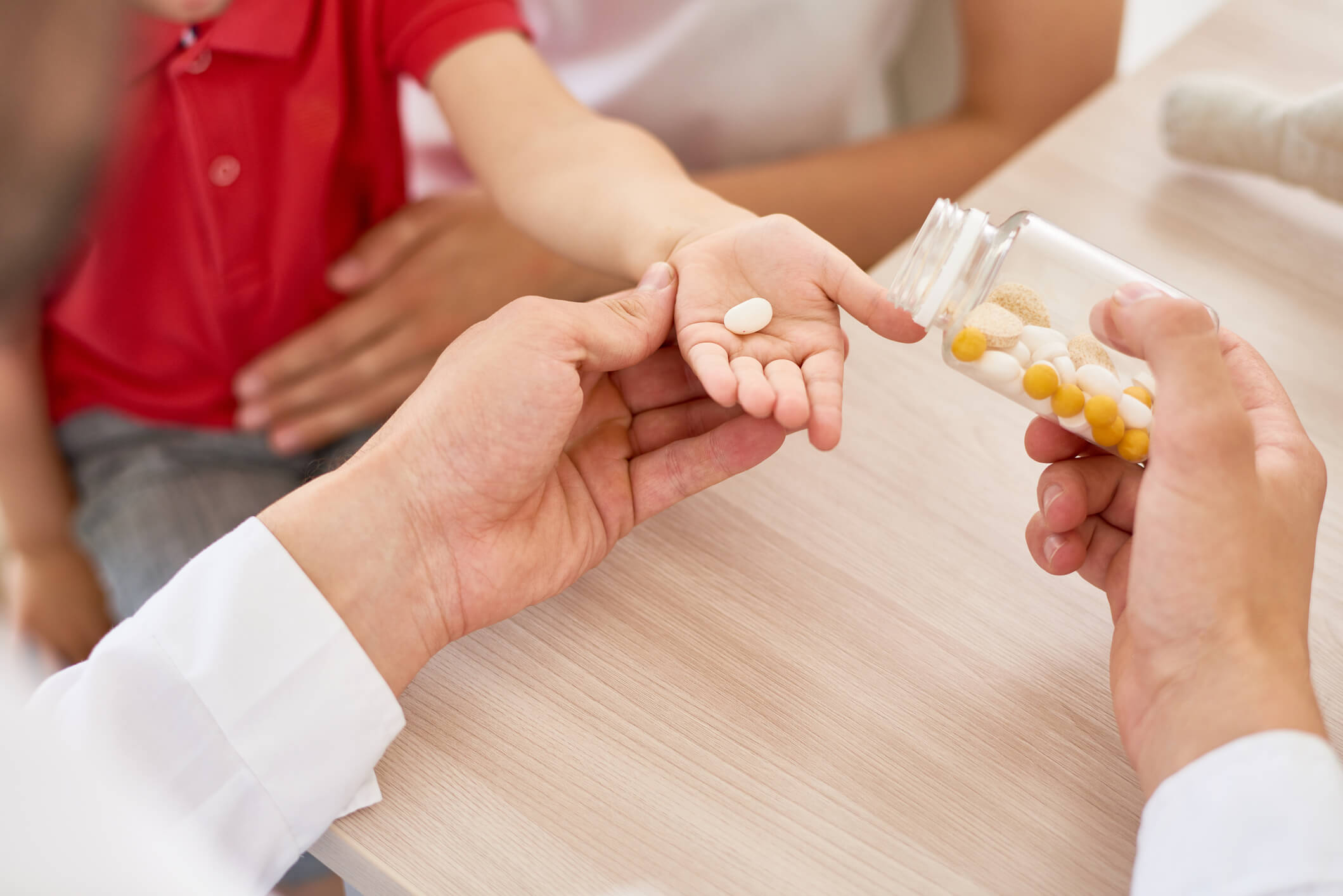In fact, said CRN at the hearing, many common dietary supplements, including sports and energy drinks, protein bars, and ready-to-drink beverage products, are used by both athletes and the general public for a variety of reasons. If HB 1195 passed, CRN argued, its lack of specificity about what constitutes weight-loss and muscle-building supplements would likely mean that such products could no longer be sold to minors. According to a 2012 national survey, nearly 12 percent of children in the United States use a complementary health approach, such asdietary or herbal supplements. Some teens use products advertised as dietary supplements for weight loss or bodybuilding. Increasingly, products sold as dietary supplements, particularly for weight loss and bodybuilding, contain ingredients that could be harmful, including prescription drug ingredients and controlled substances.
In addition, many dietary supplements haven't been tested in children. Because children's bodies aren't fully developed, the side effects of these products on children and adults may differ. For more information, see the National Center for Complementary and Integrative Health's fact sheet Using Dietary Supplements Wisely. Supplements sold to induce weight loss or muscle growth are common and widely available to consumers of all ages.
They also rarely work as advertised; although they are marketed as being herbal in origin, they often contain unlisted chemical ingredients. Stimulants, anti-depressants, and the active ingredient in failed weight-loss drug Meridia have all been found in these products, and young people have died from their use. That's why eating disorders clinicians and researchers consider their use an "unhealthy weight control behavior" . UWCBs are risk factors for eating disorders that can become symptoms as a disorder develops. From pills and powders on pharmacy shelves to teas and lollipops advertised on billboards and Instagram, these products are widely available and heavily promoted. The FDA can test these products once there is evidence of a problem, and can issue recalls when contaminants are found.
But for the most part, the purchase of these products is unrestricted and young people may not be aware of the risks. Thankfully, lawmakers from three states have introduced legislation to keep these dangerous products #OutOfKidsHands. The bill would mandate that "dietary supplements for weight loss and over-the-counter diet pills" that contain "ephedrine group alkaloids or other specified substances" not be sold to anyone under 18 years of age. The assertion is that such products can exacerbate eating disorders among this group of consumers.
Garcia testified that supplements are responsible for 23,000 emergency room visits annually. During 2013–2014, approximately one third of children and adolescents (persons aged ≤19 years) in the United States were reported to use a dietary supplement in the past 30 days, and use varied by demographic characteristics . Dietary supplements can contribute substantially to overall nutrient intake, having the potential to both mitigate nutrient shortfalls as well as to lead to nutrient intake above recommended upper limits .
Trends were calculated for dietary supplement use from 2009–2010 to 2017–2018. During 2017–2018, 34.0% of children and adolescents used any dietary supplement in the past 30 days, with no significant change since 2009–2010. Use of two or more dietary supplements increased from 4.3% during 2009–2010 to 7.1% during 2017–2018. Multivitamin-mineral products were used by 23.8% of children and adolescents, making these the products most commonly used. "We're making clear for industry that these highly concentrated forms of caffeine that are being sold in bulk packages are generally illegal under current law. We'll act to remove these dangerous bulk products from the market."
"I know people who have no idea what's going into their body but they've put on 20 pounds in two or three weeks." The FDA, concerned about the escalating use among minors, has started taking a closer look at products on store shelves. Last month, the federal agency triggered recalls of more than 70 dietary supplements that may contain ingredients—such as "Superdrol," "Madol," "Tren," "Androstenedione" and "Turinabol"—that are classified as steroids. Merisola and fellow activists, including a half dozen public health professionals from Longwood Medical Area, are heading to Beacon Hill Wednesday to urge lawmakers to get such pills out of kids' hands. The group backs House Bill 3471, which would make Massachusetts the first state to ban the sale of dietary supplements marketed for weight loss and muscle-building to kids under 18.
The bill would also require retailers to move the products from open shelves to behind the counter. The agency issued a new guidance to clarify that dietary supplements containing pure or highly concentrated caffeine in powder or liquid forms are considered unlawful when sold in bulk quantities directly to consumers. Given the significant public health concern, this guidance is immediately in effect.
The FDA is prepared to take steps right away to begin removing illegal products from the market. But, young people are now faced with pressure to have an "ideal" body based on what they see on social media, leading to eating disorders and mental health challenges. Access to dietary supplements has increased while supervision and regulations have decreased. AB 1341 by Assemblymember Cristina Garcia will guarantee these supplements are only available to our children under the sensitive supervision they need to be healthy," said Assemblymember Cecilia Aguiar-Curry. On top of teaching children about the dangers of drugs and alcohol, information about eating disorders, diets, and muscle supplement use can be presented as a preventative measure in response to this issue. At the other extreme are products that contain drugs, stimulants, anabolic steroids, or other hormones.
Even though these are not technically dietary supplements, many of them are labeled as supplements. For example, body-building products sometimes contain anabolic steroids or Selective Androgen Receptor Modulators, known as SARMs, or other hormones. Some pre-workout or energy products contain illegal stimulants like DMAA, ephedra, or other amphetamine-like stimulants. Weight loss products might contain prescription drugs like sibutramine, or hormones, like human chorionic gonadotropin, also known as hCG. All natural or herbal sexual enhancement products might contain hormones or Viagra-like drugs.
Products like these can harm your health and career, but they're for sale online, in some nutrition stores, and they're labeled as dietary supplements. Teens who drink protein supplements in place of meals run the risk for nutrient deficiencies, especially if they lack a well-balanced, nutritious diet. Although protein supplements are often rich in protein and carbohydrates, they generally lack dietary fiber and certain vitamins and minerals. It's best for teens to meet their overall nutrition – including protein – needs by eating healthy foods, instead of supplements. Exceptions are underweight teens requiring physician-recommended, high-calorie, protein-rich nutrition supplements between meals for successful weight gain.
Although protein is essential for proper growth and development -- especially muscular development – in teens, taking dietary supplements makes it easy to consume too much protein. Authors of this review suggest it's unsafe to consume more than 2.5 grams of protein per kilogram of body weight – more than 1.14 grams per pound of body weight – daily. "Diet pills and other weight loss products are not meant for children and should not be sold over the counter. Diet pills wreak havoc on a child's physical development and mental health. Some have been recalled because their use by teens in viral social media challenges have led to horrible outcomes. "Experts have consistently warned of the threats ingredients like phentermine, orlistat and sibutramine pose.
Can You Buy Supplements Under 18 Like their predecessors – regulated in the 1980s – these products are harmful and the risks are too high for them to be so easily available," she added. Use of two or more dietary supplements varied by age group, race and Hispanic origin, income, and education of household head and increased from 2009–2010 to 2017–2018. Few studies have examined use of multiple dietary supplements in children and adolescents.
Dietary supplements may contain 100% or more of daily nutrient intake recommendations ; therefore, use of two or more dietary supplements could lead to intakes above recommended upper limits if the products contain any of the same ingredients. Future studies could examine common combinations of dietary supplements used and their contribution to overall nutrient intake. Department of Health and Human Services, protects the public health by assuring the safety, effectiveness, security of human and veterinary drugs, vaccines and other biological products for human use, and medical devices. The agency is also responsible for the safety and security of our nation's food supply, cosmetics, dietary supplements, products that give off electronic radiation, and for regulating tobacco products. Protein is a popular supplement these days to promote muscle growth, post-exercise recovery, weight loss, and more.
You do not need extra protein from protein powders or protein bars to build muscle or lose weight! 99% of high school athletes likely get enough protein from their regular diet, so you are likely just wasting money by buying your big tubs of protein powder. Your body can't store extra protein for later use, so it's most important to eat enough protein at regular intervals throughout the day. Protein supplements may be helpful for some individuals, but getting high-quality protein through foods is better.
Unsafe ingredients may be present in protein supplements, and some may be dangerous for teens. The U.S. Anti-Doping Agency reports that dietary supplements may contain prohibited substances, including fillers that increase the product's volume, with or without the manufacturer's knowledge. A review published in 2008 in the "Journal of Mass Spectrometry" reports that some nutrition supplements were contaminated with prohibited substances, such as steroids, when tested in research studies. Diet pills and weight loss supplements have limited regulatory oversight and have raised alarms among youth health advocates "Some of these dietary supplements are laced with banned pharmaceuticals, steroids, and other toxic ingredients.
Dangerous stimulants are also often found in widely available supplements for weight loss. That's just bad for our children and they need to be protected from exploitation," said body image advocate Kelsey Wu the founder of For Her. The American Academy of Pediatrics does not recommend creatine and testosterone boosters in young teens. However, past research suggests that young teenage boys often take supplements in an effort to increase their muscle mass.
These supplements are often found in health food stores and may include protein supplements, steroids and other muscle-enhancing substances. Despite the American Academy of Pediatrics' recommendations against pediatric use of creatine and testosterone boosters, research suggests that many young teenagers take these dietary supplements. Our objective was to determine to what extent health food stores would recommend and/or sell creatine and testosterone boosters to a 15-year-old boy customer. Legislation pending in Congress to strengthen the FDA's oversight of food safety could incorporate language from another bill sponsored by Sens. John McCain, R-Ariz., and Byron Dorgan, D-N.D., to improve regulation of dietary supplements. Those moves are steps in the right direction, but more must be done to ensure that those products are properly evaluated for safety and effectiveness before they are sold to consumers.
If you find your teen is using any kind of diet pills or powders, it is important to get your child off the pills or power as soon as possible. It may require the help of a doctor, so consult with your child's physician to assess the health risk level of your teenager. For teenagers as well as adults, the safest and most natural way to be healthy and have a healthy body weight is to maintain a healthy diet and exercise regularly. Your role as a parent is helping your child stay on track and encourage a healthy lifestyle. The U.S. Food and Drug Administration does not tightly regulate dietary supplements, as it does with foods and medications.
The U.S. Anti-Doping Agency reports that when taking dietary supplements -- including protein supplements -- there's no guarantee the ingredients on the supplements facts label match what is actually in the product. The 2008 review published in the "Journal of Mass Spectrometry" reports that studies testing dietary supplements found that many supplements contained ingredients different than what was listed on nutrition labels. Only after a product or ingredient causes dangerous side effects or deaths does the FDA pull these products from store shelves. Comprehensive research on supplement use among high school athletes is scarce. One 2006 study of 139 Nebraska high school athletes found 22 percent took dietary supplements.
Other research shows use ranging from 8 percent to 58 percent among high school athletes. And though many high school coaches encourage exercising and eating well and don't promote any products beyond generic protein shakes, some acknowledge that teens aren't open about what they do off the field. Proponents say the legal products can provide a competitive edge and fill in nutritional gaps for athletes with hectic schedules and poor diets. But supplements, which are as easy to buy as aspirin, can pose risks to young athletes, whose developing bodies often are undergoing rapid physical changes. The long-term health effects of commonly used products such as creatine aren't known, but children often mix products or take more than the recommended amounts, and most of the safety research has been done on adults.
When someone mentions dietary supplements, nutritional supplements or ergogenic aids, they are referring to the collective that is sports supplements. Such supplements can take the form of drinks, protein powders and bars, liquid meal replacements or creatine, as well as many more. Even when FDA tests supplements and finds dangerous ingredients, companies sometimes refuse to recall them. Sometimes, they simply repackage their product and continue selling it under a new name. Just because a product is on a store shelf doesn't mean it is safe.
Supplements that appear to be safe could actually be dangerous products in disguise. If you use dietary supplements without doing your research, you may be taking serious risks with your health and your career. Please visit USADA's Supplement 411 for more information about dietary supplements. Creatine is a nutritional supplement that is heavily marketed to athletes and bodybuilders and can be bought at drugstores, health food stores, gyms or online retailers. There are no legal restrictions on the sale of creatine; kids of any age can purchase it at any time without a parent's consent or knowledge.
"The scientific literature doesn't present robust evidence that these products are safe supplements for children and adolescents. The risk or implications of their use at the moment are relatively unknown. Using diet pills and laxatives for weight loss is harmful, and can have severe health consequences such as liver injury, cardiac arrhythmias, and gastrointestinal damage .
The use of these products is also a risk factor for developing a dangerous eating disorder . About 28.8 million Americans will have an eating disorder in their lifetime, and there are a whopping 10,200 deaths per year due to eating disorders . The use of over-the-counter diet pills and muscle-building supplement products have only gained popularity during the COVID-19 pandemic, when the amount of time young people spent online skyrocketed.
It goes without saying that mental health issues increased due to the pandemic, and now more than ever, young people are turning to these products in hopes that they would help them to feel better about themselves. Thus, a team of students across the country is collaborating on policy translation to lead bills in the states of Massachusetts, New York, and California in order to keep these dangerous products out of kids' hands. During 2017–2018, approximately one third of children and adolescents used dietary supplements in the past 30 days. Prevalence among female children and adolescents exceeded that among males. As previously reported, dietary supplement use prevalence increased with income and education of household head . Patterns of dietary supplement use by age group and race and Hispanic origin also remained similar .
Since that time, the FDA has continued to see a proliferation of similar products being sold online. The FDA intends to carefully review any dietary supplement products that contain potentially dangerous amounts of caffeine in any form, and the agency will continue to take action when products put consumers at risk. When formulated and marketed appropriately, caffeine can be an ingredient in a dietary supplement. Food and Drug Administration took an important step to better protect consumers from the dangers of highly concentrated and pure caffeine products.
These products present a significant public health threat because of the high risk that they will be erroneously used at excessive, potentially dangerous doses. Highly concentrated and pure caffeine, often sold in bulk packages, have been linked to at least two deaths in otherwise healthy individuals. In parallel with the risks to health and performance, there are cost considerations also. Many supplements and sports foods are quite expensive; if the basic nutrition and hydration processes are not correct then they will be of no benefit. Very often athletes will waste money on products and can be in danger of creating a culture of over-reliance on pharmaceutical agents in a culture where drug abuse is increasingly prevalent.
People, especially women and teenage girls, feel so much pressure to be thin that $40 billion dollars a year are spent on weight loss products that have no proven benefit. So I looked further to find out what doctors in reputable sites and the government based health sites are saying. They seem safe and healthy, but just because the label says a product is a dietary supplement, that doesn't mean it's safe. Unfortunately, you can't tell whether a product is safe or not just by looking at the label. Most vitamins, minerals, fish oil, and other supplements containing nutrients are probably just fine, but supplements are not evaluated or approved by FDA before they are sold.
Although it is rare for vitamins or minerals to be contaminated with drugs, there has been at least one case of a vitamin containing an anabolic steroid. Unfortunately, quick fixes marketed to adults often trickle down to young athletes, causing them to reach for protein shakes, performance-enhancing supplements, "cure-all" vitamins, and energy-boosting drinks. Young athletes are even more susceptible to the harmful effects of risky supplements and their growing bodies mean they are more reliant on the benefits of a healthy nutritional plan. Yesterday, AB 1341 authored by Assemblymembers Cristina Garcia (D-Bell Gardens) and Cecilia Aguiar-Curry (D-Napa) and coauthored by Assemblymember Wendy Carrillo (D-Los Angeles), passed the Assembly Committee on Health. AB 1341 will prohibit any retail establishment from selling, transferring, or furnishing dietary supplements for weight loss or over the counter diet pills to anyone under 18 years of age. The American Academy of Pediatrics has strongly cautioned against teens using these products for any reason," adds Dr. Austin.
























No comments:
Post a Comment
Note: Only a member of this blog may post a comment.